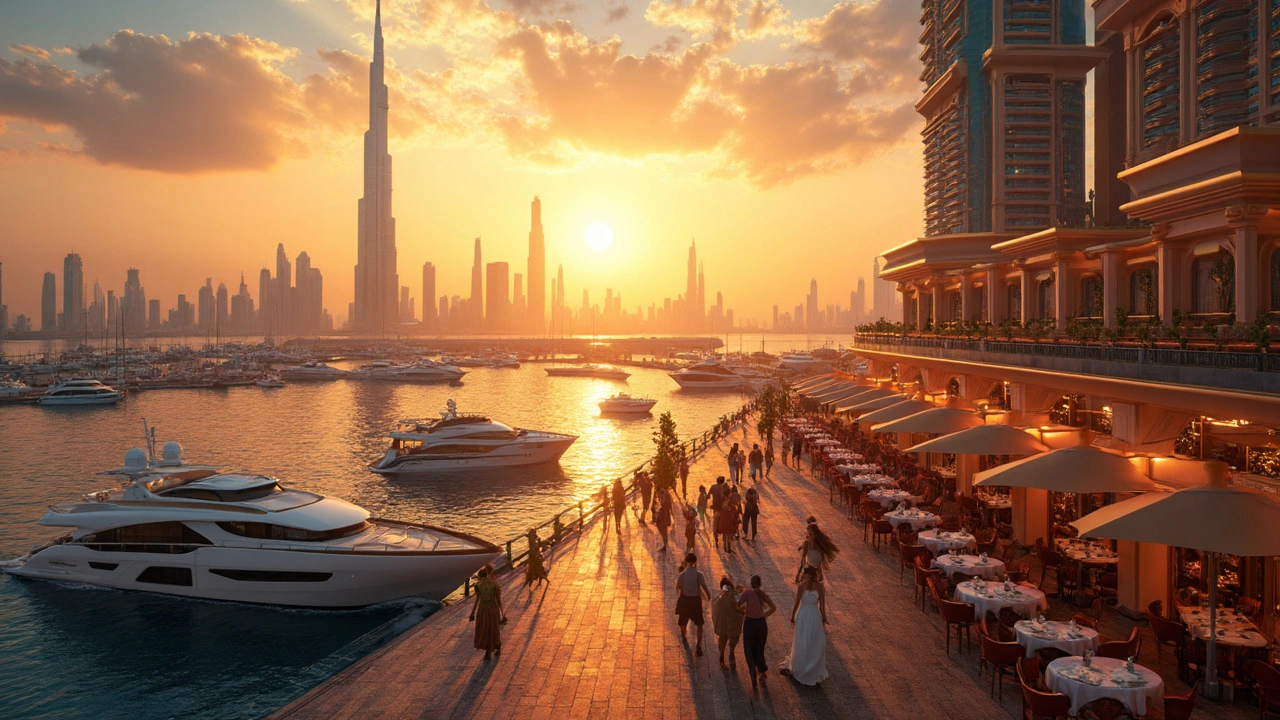Dubai Economy: What Drives the City and How It Affects You
Dubai isn’t just flashy skyscrapers and luxury malls – it’s a fast‑growing economy that shapes everyday life for locals, expats and tourists. Want to know why the city feels so vibrant? It’s the mix of oil money, real‑estate booms, tourism inflow and a smart tax system. In this guide we break down the main drivers, the cost of living, and what you need to know if you’re thinking of working, investing or just visiting.
Top Sectors Powering Dubai’s Growth
The first thing to get is that oil isn’t the only gold mine any more. While hydrocarbon revenues gave the city its initial boost, today the real engine is tourism, trade and finance. The hospitality industry pulls in millions of visitors each year, and that spill‑over creates jobs in restaurants, transport and entertainment. Free‑zone areas like Dubai Media City and Dubai Internet City attract tech firms with 100% foreign ownership, making the city a regional tech hub.
Real‑estate is another heavyweight. Projects like the Burj Khalifa and Palm Jumeirah not only draw tourists but also provide long‑term rental income for investors. If you’re looking at buying property, remember that the market reacts to global travel trends and local regulations, so staying updated with the latest news helps you avoid surprises.
Living Costs: How Much Do You Need?
Most newcomers ask: "Is Dubai expensive?" The answer depends on your lifestyle. A budget‑friendly expat can manage on roughly 5,000 AED a month if they share housing, cook at home and use public transport. However, a single‑person apartment in downtown can easily cost 8,000‑10,000 AED, and dining out at a mid‑range restaurant adds another 150‑200 AED per meal.
Transportation is relatively cheap thanks to the Metro, which starts at 3 AED per ride. Taxis are more pricey but still cheaper than many Western cities. For those who drive, fuel is subsidised, keeping gasoline prices among the lowest in the region.
Don’t forget taxes – Dubai has no personal income tax, which is a huge perk. However, there is a 5% VAT on most goods and services, and a tourism fee of around 20 AED per night for hotel stays. These small additions can add up, so factor them into your budget.
When planning a trip, the “Is $1000 enough for Dubai?” article shows you can stretch a modest amount by staying in budget hotels, eating street food and using free attractions like public beaches. For longer stays, the “Is rent in Dubai monthly?” guide explains how cheques, Ejari contracts and security deposits work, so you know what to expect before signing a lease.
Overall, Dubai’s economy offers opportunities for work, investment and leisure, but the cost of living varies widely. Keep an eye on the latest legal updates – whether it’s about renting, buying or even simple things like what you can carry into the country – and you’ll navigate the city with confidence.
-
 VIEW POST
VIEW POSTWhy Dubai is So Wealthy: Understanding the Factors Behind Its Opulence
Dec, 26 2024|0 CommentsDubai's wealth is not just a product of its natural resources; it's a complex mix of strategic planning, tourism, and financial savvy. This wealth supports a thriving luxury market, making it a hotspot for high-end escorts. We'll explore how Dubai transformed itself into the lavish city it is today, examining its economic drivers, key industries, and impact on luxury services.